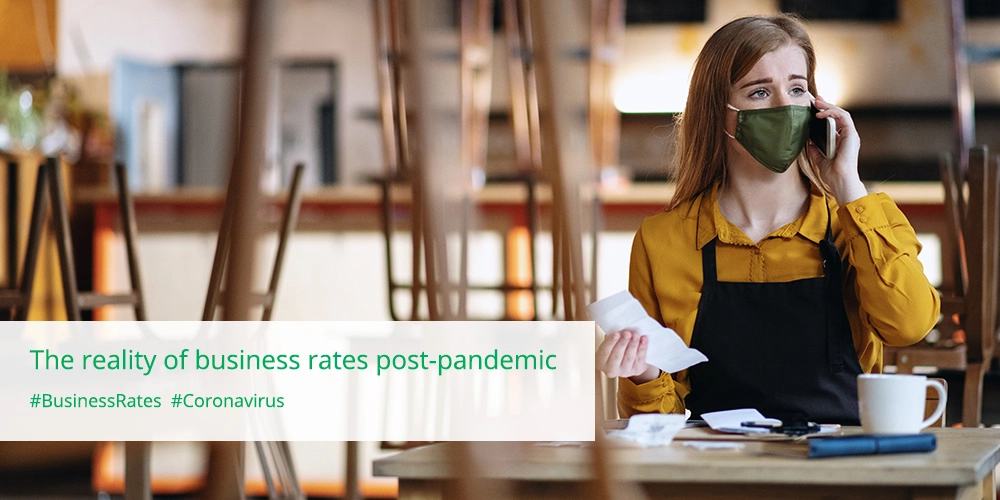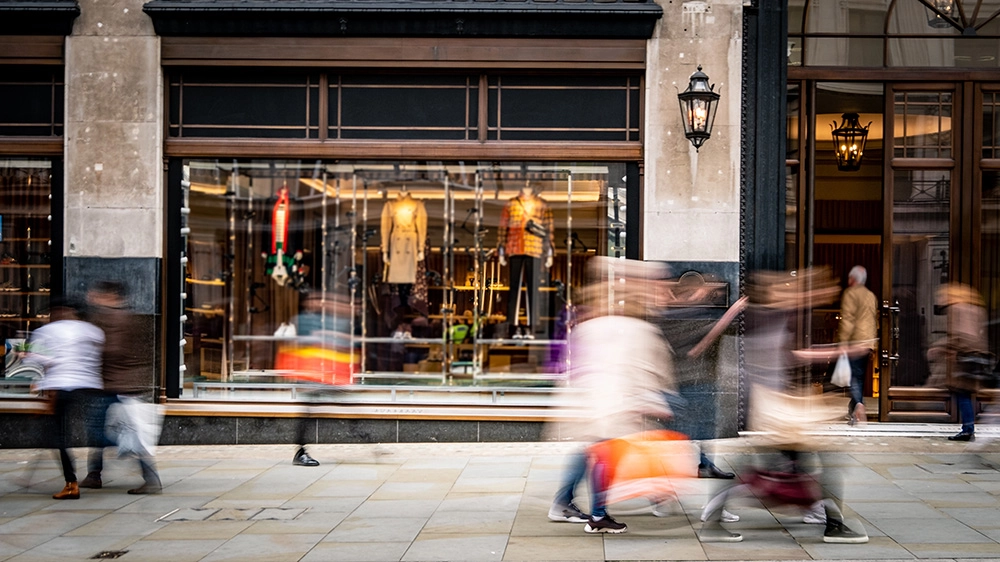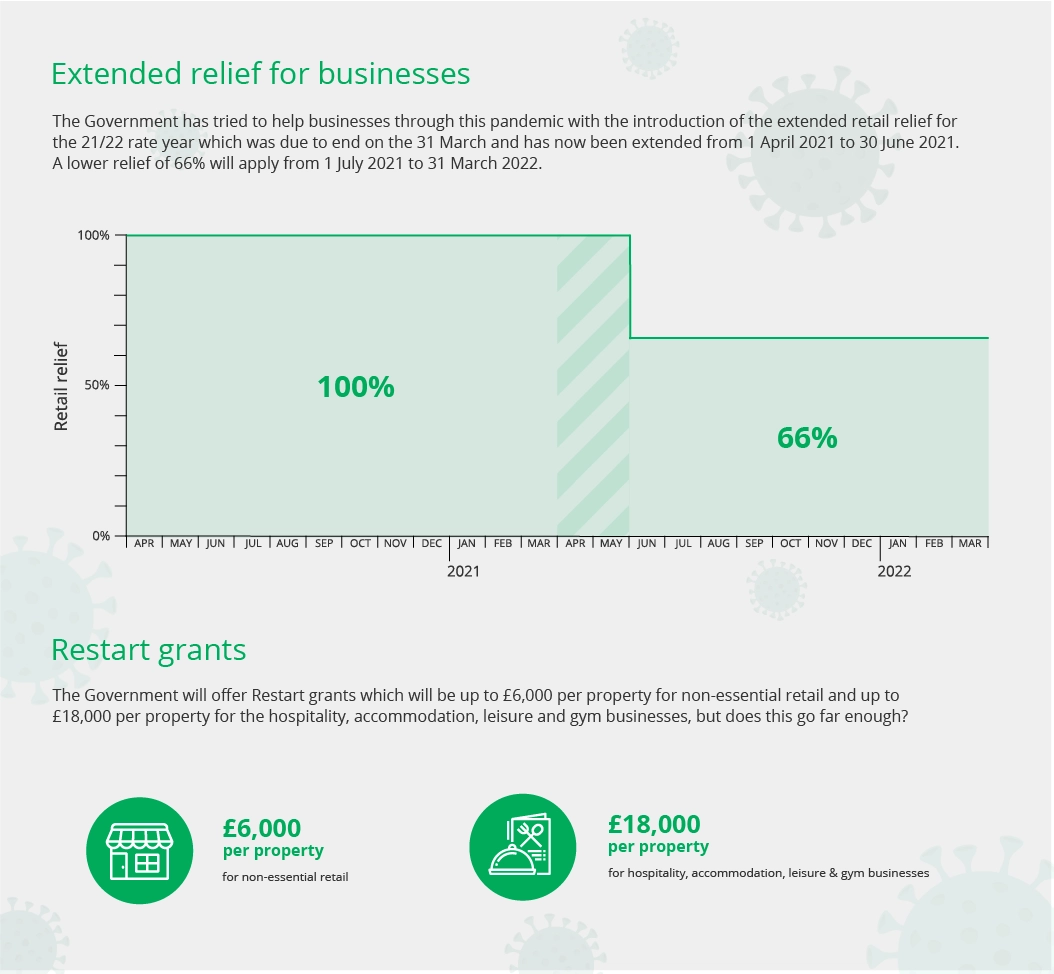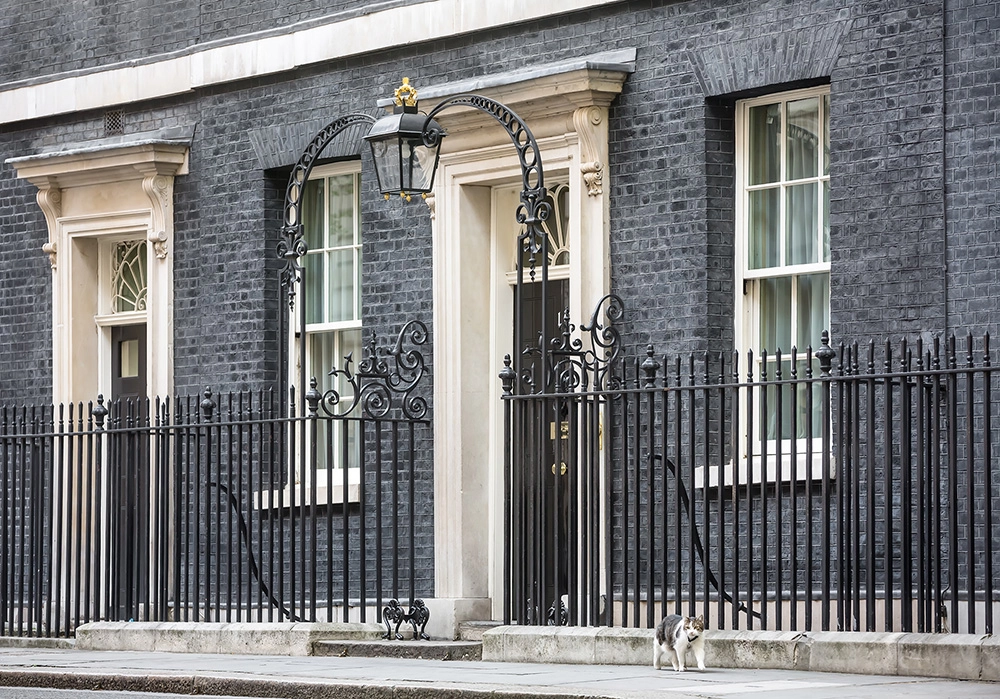Wilks Head & Eve LLP,
3rd Floor
55 New Oxford Street,
London, WC1A 1BS
020 7637 8471
enquiries@wilks-head.co.uk
Business rates and the lasting effects of coronavirus
16th April 2021 by Andrew Williams
Well, who would have thought a year has gone by since the first lockdown and, whilst we have seen schools reopening, and retail gradually reopening we still have restrictions in place. As we know the impact of this event will no doubt have a long lasting effect on us all.
Business rates have, for the most part, seen the Government step in and offer aid in the form of relief through the extended retail relief scheme and grants for small businesses and Retail, Hospitality and Leisure.
The coronavirus pandemic has led to many businesses becoming impacted by the situation and changing the way in which some of us work, many of us from home, which has identified its own challenges.
Quiet Central London leads to a decrease in high street retail
Retail and food establishments relying on footfall from office workers in cities and town centres have had a nasty reality check. That of course is in addition to the structural shift in shopping patterns which has moved vast amounts of people’s shopping habits online, probably permanently.
Even before the first lockdown we had seen the retail sector experiencing higher levels of vacancy and the move to online shopping but the current situation has even further added to that. Does this then lead to other industries potentially being at risk of this? This would potentially lead to, much like retail, further sectors going into administration/closures which for public houses and restaurants is a real possibility. The alterations that have been made to premises to allow them to reopen along with the different ways of working will create financial issues for many businesses.
Easing of restrictions for non-essential business
The gradual easing of restrictions from 29 March 2021 has seen outdoor sports facilities such as tennis and open-air swimming pools, reopen, and people are able to take part in formally organised outdoor sports. From the 12 April the opening of non-essential retail such as hairdressers and nail salons, public buildings, including libraries and community centres.
Public Houses which can open for outside trading on the 12 April face issues around limiting numbers which will reduce revenue potential.
The aviation industry is another of the largely affected sectors, with uncertainty surrounding the possibility of overseas travel this year. The result of all this is to take a break in the UK and have a staycation. That message has been a saviour – at least in the short term to the UK hospitality industry who suffered heavily through lockdown.
It has been announced that the next revaluation will now not take place until 2023. It is debateable whether this will help or add to further uncertainty. The AVD has historically been two years prior to the Valuation date so with a 2023 revaluation this would make April 2021 the AVD where we were still in a phased opening of lockdown.
“With so many industries affected, will the postponement in the revaluation to 2023 and the new AVD at 2021 leave us in a better or worse position that we are now? Only time will tell”
Those who fell through the cracks
There are of course the ‘losers’ who have not been able to benefit at all from any of the Government’s announcements on reliefs and grants. What is available to those that are not eligible for the extended retail relief scheme? For those businesses that fall outside of the scope of the extended retail relief scheme facing financial difficulty there are still potential routes available for mitigating rates and this includes Local Authorities who, whilst having properties that were captured within the scheme, were prohibited from access to the reliefs or grants.
Temporary reliefs for wholly vacant or partly occupied property can be potential routes for mitigating rates – through Section 44A and empty rates relief applications which can be made through the Billing Authority but supporting evidence is often required and what constitutes a wholly empty property can sometimes cause confusion.
Latest update from Downing Street
The Government on the 25 March made a statement saying that our business rate system is designed to provide a stable source of income for Local Authorities and that with regular revaluations market wide economic changes affecting property values, such as from COVID-19, can only be properly considered at these general revaluations and that MCC appeals should be intended to consider individual cases like roadworks near a property that affect its value.
The Governments approach to this is to introduce primary and secondary legislation to clarify that COVID-19 is not an appropriate use of Material Change of Circumstance provisions so the hundreds of thousands of checks/challenges that were submitted by ratepayers and their agents will now be removed from the system and replaced with the Governments new ‘1.5bn pot’ but does this go far enough and will this help all those who are struggling as a result of this pandemic – it is likely it won’t be enough.
What is clear, is that when we do return to what we might describe as ”normal”, those new norms in many aspects will be different to pre-COVID norms.
Andrew Williams- Author
Partner
Dip BSc (Hons) MRICS FIRRV Registered Valuer
awilliams@wilks-head.co.uk






